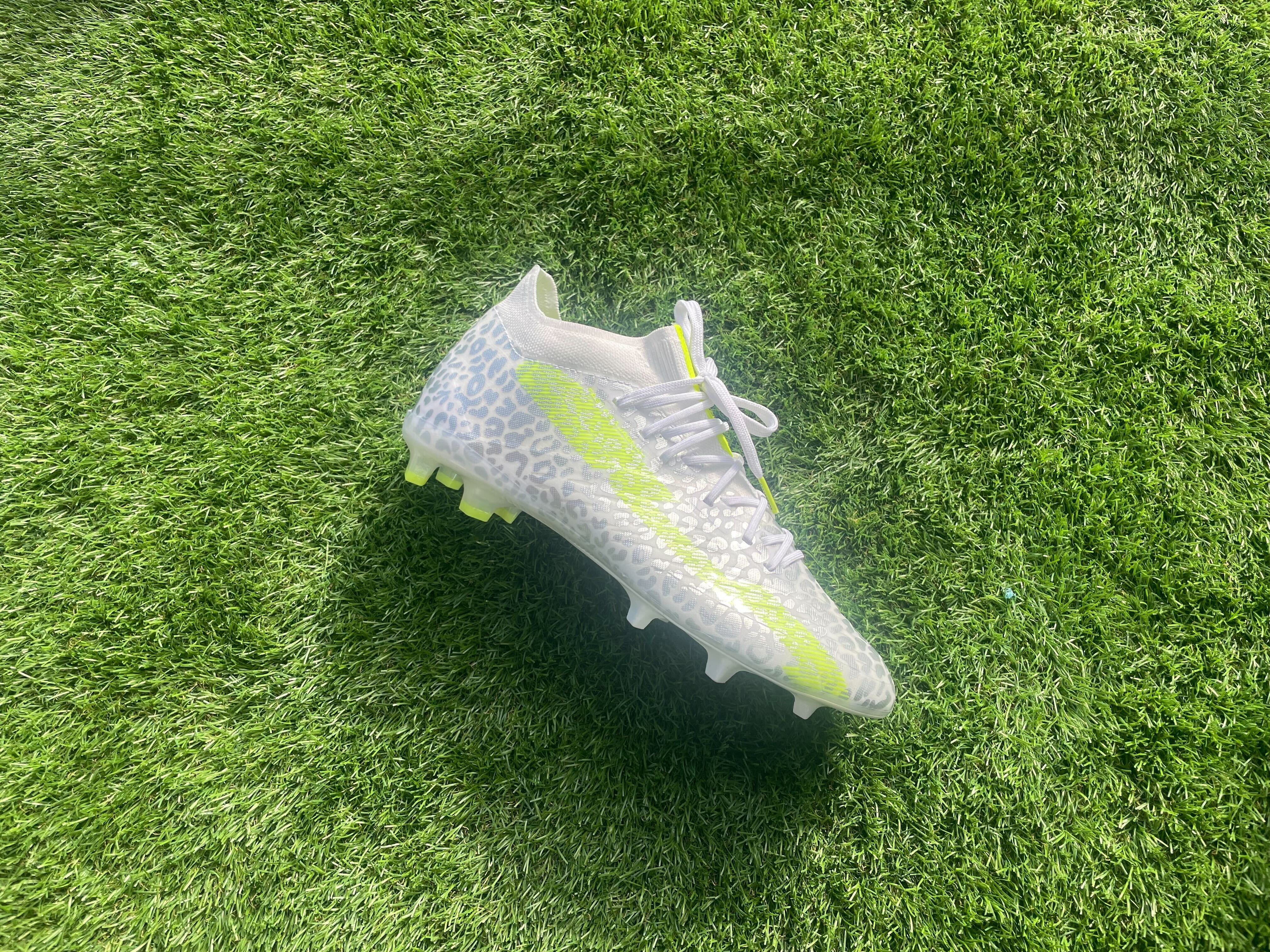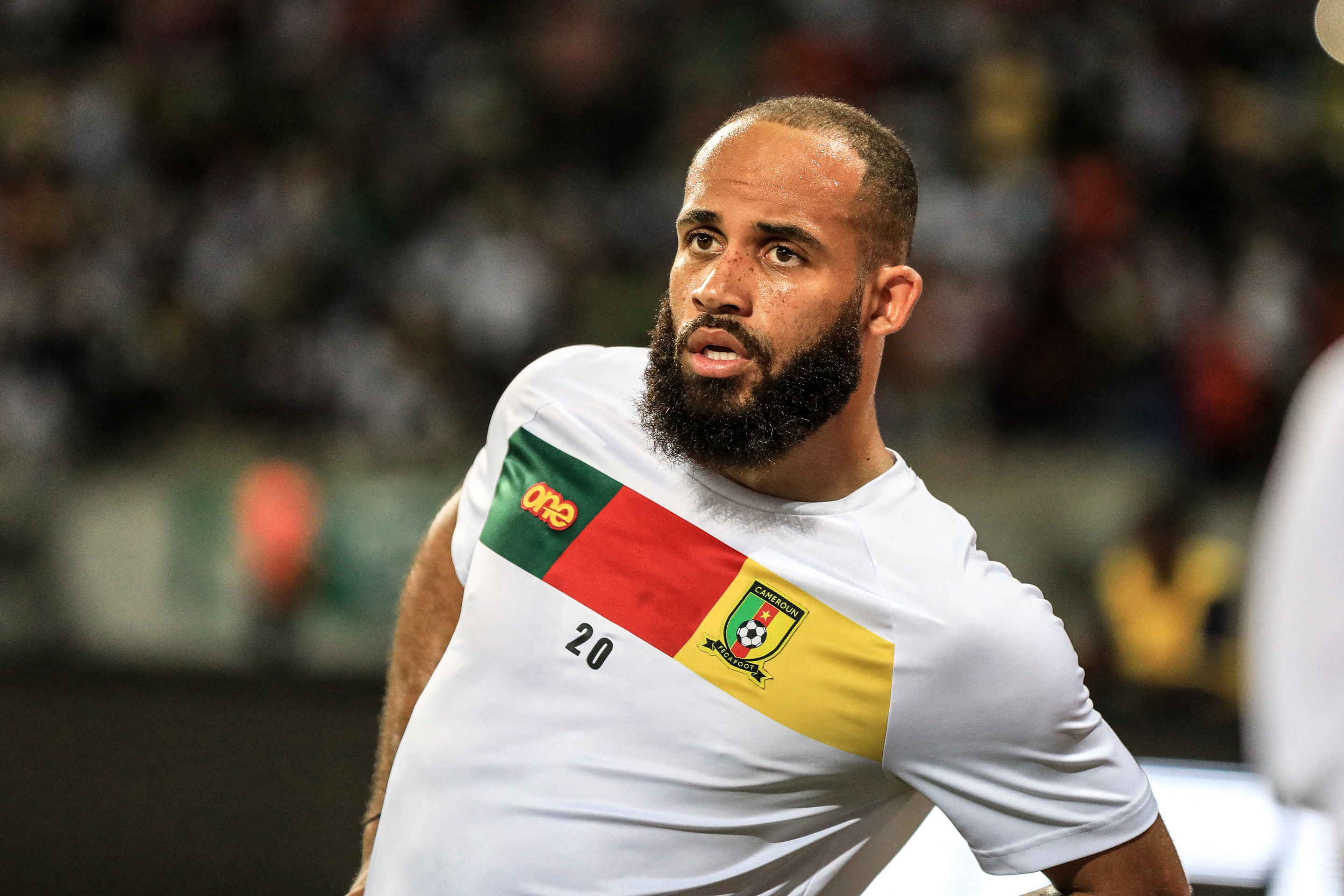FourFourTwo Verdict
Decathlon's Kipsta brand have proved they are able to provide a competitive option in the elite boot market for a fraction of the price of their rivals. The Kipsta CLR Elite continues this trend and will appeal to those after durability, a lightweight feel and value for money.
Pros
- +
Value for money
- +
Lightweight
Cons
- -
Overly flexible soleplate
Decathlon has entered the football boot market with the Kipsta CLR Elite, in a bullish attempt to disrupt the status quo of Nike, Adidas and Puma.
One of the biggest names in sports retail, with stores all over the world, Decathlon built its name selling affordable products through in-house brands. Probably the best known of these brands is Kipsta - and Decathlon is now making a huge push at the top end of the world's favourite sport with both footballs and football boots.
The official match ball used in Ligue 1, Ligue 2, the Europa League, Europa Conference League and other professional leagues now carry the Kipsta name. And the same brand are now delivering the goods when it comes to the best football boots.
But can they offer a serious alternative to market rivals? I was able to try the Kipsta CLR Elite to see if they have been able to deliver on this aim.
Kipsta CLR Elite review
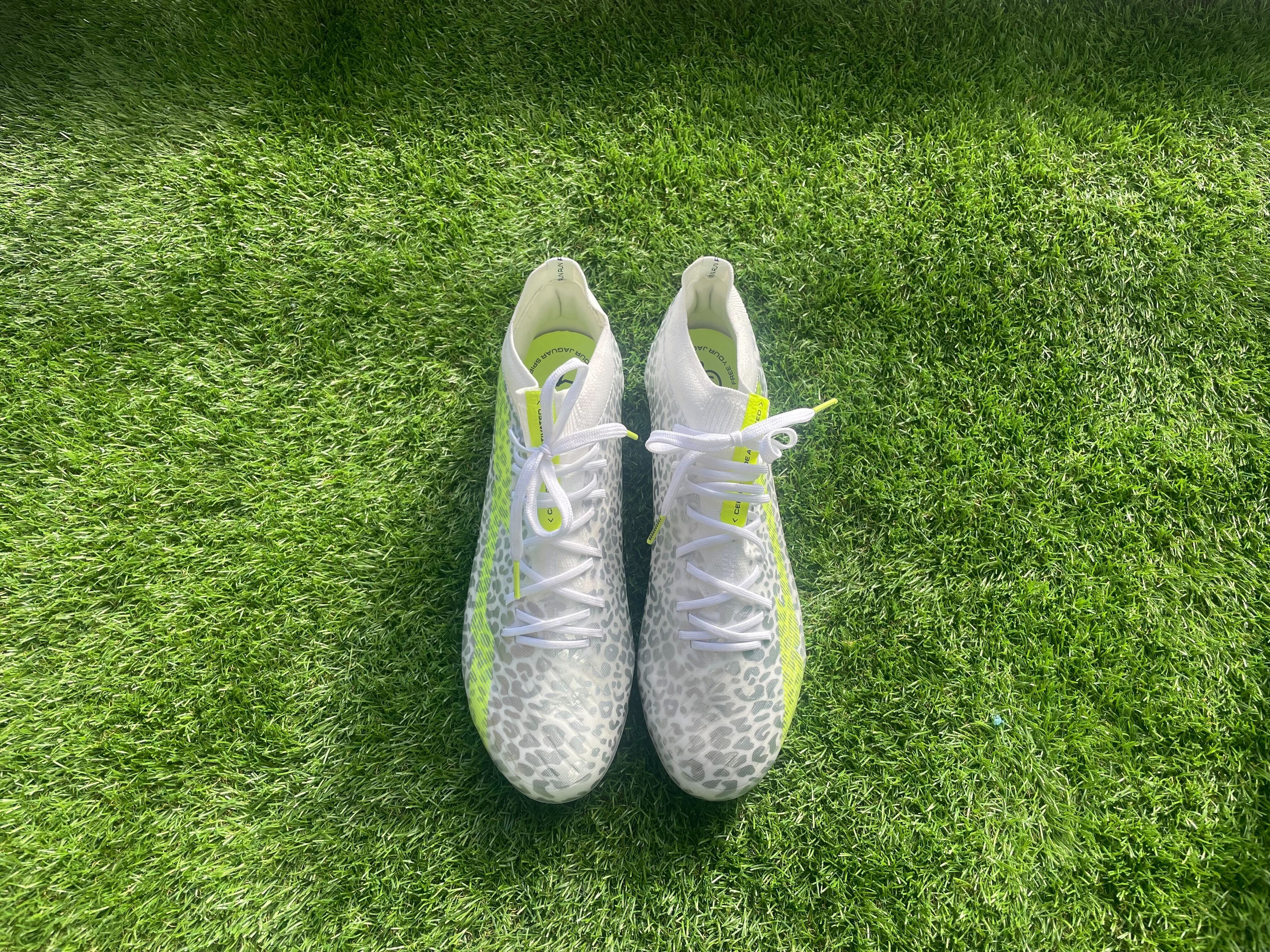
The Kipsta CLR Elite will compete against the best football boots for speed alongside the likes of the Nike Mercurial Superfly 10 Elite, Adidas F50 Elite, Puma Ultra 5 Ultimate and the New Balance Furon V7+ Pro. The least expensive of these is the NB Furon at a price point of around £220, with the Puma Ultra 5 Carbon coming in at £260 as the most expensive.
By contrast, the CLR Elite is at the other end of the scale, retailing at £70 – a significant saving and a price point that the models from the biggest brands cannot compete with even when heavily discounted or replaced by newer generations.
Despite the relatively low price tag, the CLR does bear some of the characteristics you would expect from the best lightweight football boots.
The best features, fun and footballing quizzes, straight to your inbox every week.
I found these boots to be extremely lightweight with the upper made up of Decathlon’s Skin touch control technology.
It is a super thin, minimalist synthetic upper that brings you close to the ball in a way this type of boot should. There isn’t much in the way of added grip on the upper itself, but this isn’t necessarily a problem, especially given that it is relatively sticky to the touch anyway.
The CLR Elite is comfortable from the off and needs very little break-in. Personally, I had no problems with them out of the box. With the wide range of options available in the market at the moment I think it is important for pairs to have a ‘plug and play’ quality to them and the CLR does have this.
One thing the CLR lacks in comparison to other speed boots is responsiveness. The soleplate is too flexible – it can be bent almost completely in half by hand. Boots built for speed at the elite level tend to have stiff, snappy outsoles for increased energy return when taking off.
However, the softness of this plate means the CLR Elite is unable to offer this. The stud shape is also somewhat atypical for this category with mainly diamond studs through the plate, with a couple of chevron studs in the heel area. This configuration naturally lacks the level of traction provided by models such as the Mercurial, F50 and Furon.
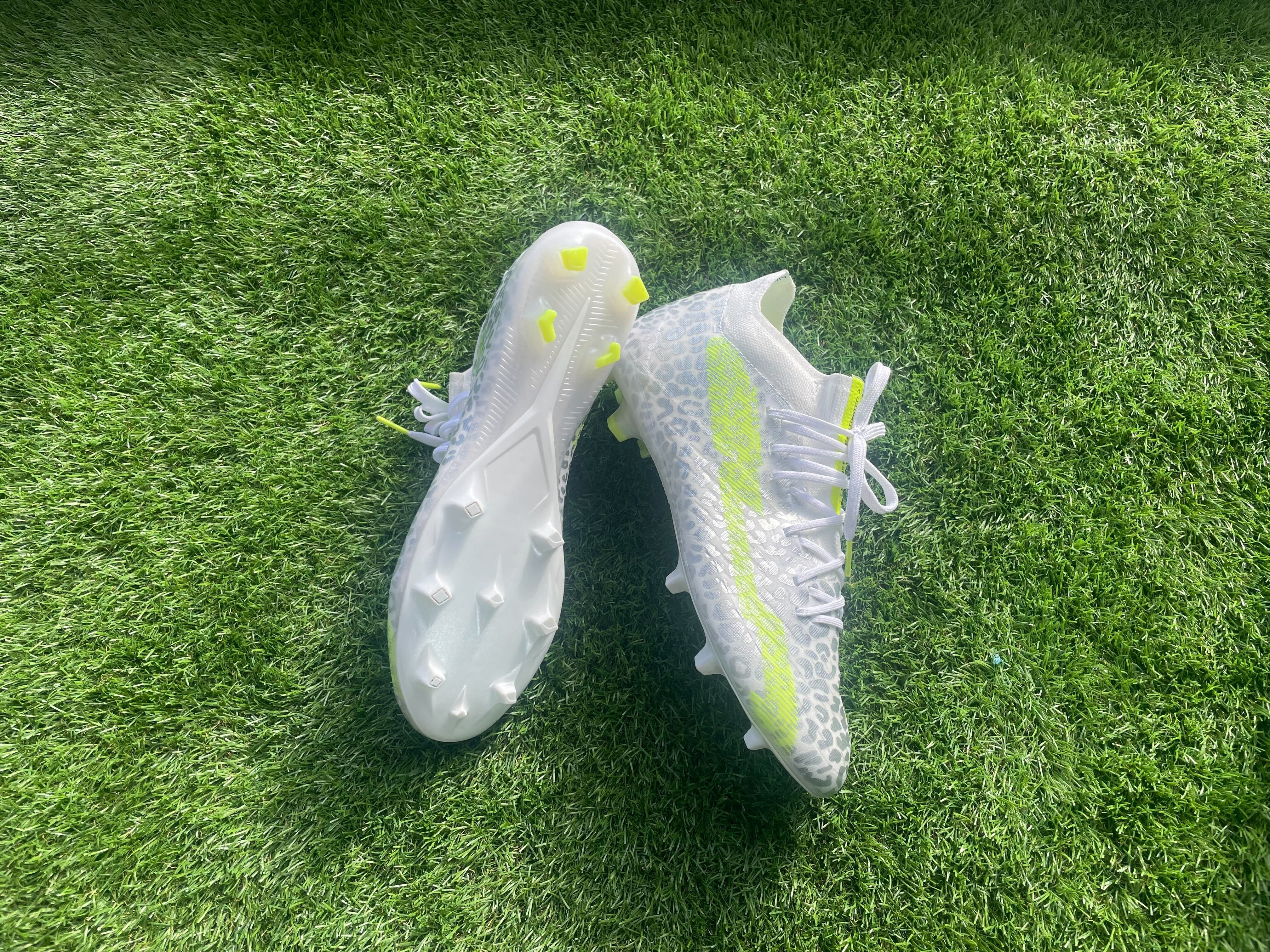
One advantage of there being slightly less traction is that this pair can be worn on artificial surfaces if absolutely necessary. The studs are short and not particularly aggressive in shape, so these are one of the better FG speed boots around for wear on AG along, alongside the Lotto Solista and, to a lesser extent, the Adidas F50 Elite.
Another plus point from the CLR Elite outsole is that they're one of the most comfortable football boots that focus on speed. The extra flexibility, compared to pairs such as the current Mercurial Vapor and Superfly or the Puma Ultra Carbon, ensures it is a little easier on the soles of your feet. Therefore, depending on what you want from a pair, it is possible to prefer the feel of the CLR plate.
I would say though, that it is perhaps a little too bendy even with the comfort considered. Although I personally do prefer a flexible soleplate, I would have liked the CLR elite to have maintained some extra stability in the midfoot.
The Kipsta CLR Elite is a high-volume football boot so will be suitable for those with wider feet. The speed boot often excludes those who fall into this category, so a design that offers this experience is a good thing.
My feet are on the slimmer side, so there was a little extra room around my feet in the area of the opening of the boot, so the lockdown was impacted slightly. The boots do feature fairly deep, central lacing so the adjustability is good. I think the lockdown will be better for players who don't have particularly narrow feet.
The knitted collar that houses the lacing system at the opening of the boot is comfortable and stretchy and this added to the decent adjustability. In terms of fit, these may be one of the better speed boot options for those with wider feet. I wore my pair a half size smaller than usual, as I found my normal size to be slightly roomy. For those with slimmer feet I think this would be the best option, but it is always best to try before buying when possible.
Interestingly, Decathlon has taken the unique step of publicly advertising the number of uses to expect from each of its models, giving each an ‘XP’ rating. The CLR Elite has an XP of 148, therefore a pair can be expected to last 148 uses whether it be training or in a competitive match.
The boots also come with a two-year warranty, with Decathlon placing greater emphasis on durability for, not only the Kipsta CLR, but all of its ranges. Durability is one of the aspects of football boots that many would argue has deteriorated while market prices have rocketed.
Whilst this often due to misuse (wearing FG boots on AG for example) it is something that brands should do more to address, particularly given just how much the average pair costs now.
Most pairs used appropriately should last about a season so if Decathlon is able to offer pairs that can last significantly longer, if worn once or twice a week, at a fraction of the cost then this could have a profoundly positive impact on the wider market.
One of the biggest problems users face in the current boot market is price. The cost of elite boots is exorbitantly high and increases every year, as brands release new models at a rapid rate. Alternatives to this trend are welcome and Decathlon’s entry into the elite market at a significantly cheaper price point is certainly a welcome alternative.
In terms of value for money, the Kipsta CLR Elite cannot be argued with. For this price it is a good pair of football boots and delivers the lightweight feel and barefoot touch that boots in the speed category should.
I don't think that the boots quite reach the level to compete with the most expensive pairs from the biggest brands. But at a price that is almost £200 cheaper, it is a trade-off that will prove appealing for many.
If Decathlon are able to build on the foundations of the Kipsta CLR Elite and keep the price at a similar level in addition to some smart endorsements, then we could be looking at a massive disruptor in the football boot market.
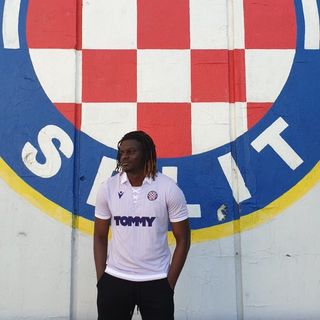
A football boot and shirt enthusiast who collects all kinds of kit and equipment, Lolade Jinadu is a social media influencer with over 40,000 fans on Instagram. Lolade boasts all kinds of boots in his extensive collection, from retro classics to brand-new releases and has an extensive knowledge of some of the biggest and best brands in the beautiful game, thanks to his years of sampling high-end products. Lolade reviews boots for FourFourTwo.
- Jack Lacey-HattonFreelance writer
